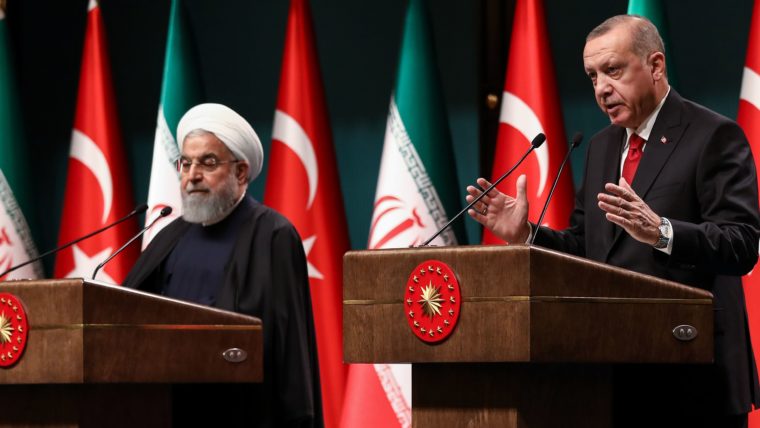Iran’s President Hassan Rouhani and his Turkish counterpart, Recep Tayyip Erdogan, met during the fifth session of the Turkey-Iran Cooperation Council in Ankara last week to discuss the possibility of Iran helping Turkey meet its long-term energy needs, despite pressure on Iran from the United States.
“Iran is ready to meet Turkey's energy demands in the long term,” Trend quoted Rouhani as saying on December 20, as he described U.S. economic sanctions against Iran as “rough and unfair.”
In May, the U.S. President Donald Trump announced that he would be pulling the United States out of the Joint Comprehensive Plan of Action, better known as the nuclear deal, and phase back in sanctions on Iran. By early November, the full menu of sanctions had been piled back on, including those on Iran’s oil and gas industries as well as its banking sector. However, Washington had granted a 180-day reprieve to the eight largest buyers of Iranian oil, one of which is Turkey.
“We are able to turn sanctions into an opportunity for interweaving the economies of Iran and Turkey with proper management,” the Iranian president said, according to Mehr news agency.
During a joint press conference held during the two-day summit, both Rouhani and Erdogan criticized Washington's decision to withdraw from the nuclear deal.
“We must stop the U.S. sanction decision on Iran from impeding us to reach our targets,” MEMO quoted Erdogan as saying at the press conference with his Iranian counterpart. “No one should expect us to end economic and trade relations with Iran due to the sanctions,” the Turkish president said.
For his part, the Iranian president thanked Erdogan for his firm stance regarding what Iran sees as American unilateralism and unlawful sanctions, equating the U.S.’ policies towards Iran with “terrorism.”
Iran is a founding member of the Organization of Petroleum Exporting Countries (OPEC) and the Gas Exporting Countries Forum (GECF), making its surplus an attracting import for a country like Turkey, which has a growing economy and very limited oil and gas deposits throughout its territory.
In June, speaking at the Turkey-Iran Business Council, Rouhani highlighted the mutual interests between the Caspian country and Turkey, which is often described as bridging Europe with Asia.
“Turkey is a bridge connecting to the West and Europe, while Iran is a bridge to the Far East; we should use these two countries as bridges for regional development. Turkish and Iranian economies should complement each other.”







 Russian peacekeeping forces, deployed in the Karabakh (Garabagh) region of Azerbaijan since 2020, have commenced their withdrawal from the area.
Russian peacekeeping forces, deployed in the Karabakh (Garabagh) region of Azerbaijan since 2020, have commenced their withdrawal from the area.
 The number of evacuees from flooded areas in Kazakhstan has reached 97,852 people, including about 32,856 children since March 27.
The number of evacuees from flooded areas in Kazakhstan has reached 97,852 people, including about 32,856 children since March 27.
 Azerbaijan officially unveiled the logo for the upcoming 29th session of the Conference of the Parties to the United Nations Framework Convention o...
Azerbaijan officially unveiled the logo for the upcoming 29th session of the Conference of the Parties to the United Nations Framework Convention o...



